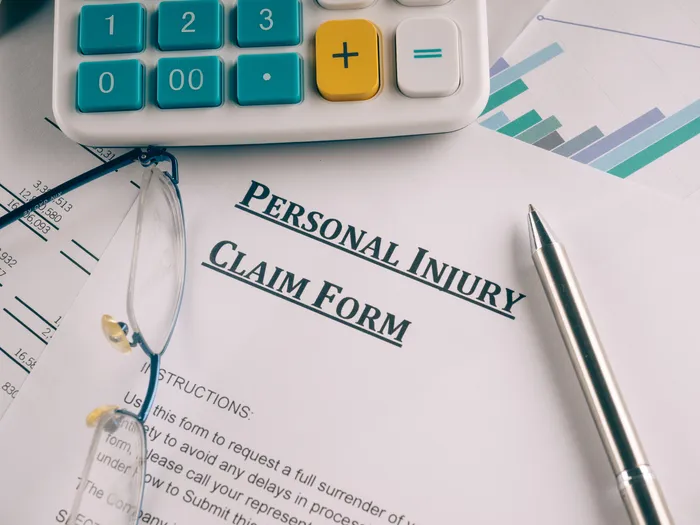7 min read time
Summary
You can sue for emotional distress. However, for the claim to be valid, the emotional distress you experience must have been severe and consistent.
Table of Contents

What Is Emotional Distress?
In personal injury law, emotional distress is a highly unpleasant emotional reaction caused by an incident, action, or series of events.
Emotional distress is often not a stand-alone lawsuit but is usually tied to a personal injury lawsuit that is filed because of the negligent or intentional actions of a party that result in physical injuries, such as a car accident.
Common symptoms of emotional distress include chronic:
- Anxiety
- Depression
- Insomnia
- Post Traumatic Stress Disorder
Types of Emotional Distress Lawsuits
Emotional distress claims are split into two categories, which are negligent and intentional infliction.
These two categories help address mental suffering, whether intentional or negligent acts caused it.
Negligent Infliction of Emotional Distress Suits
Negligent Infliction of Emotional Distress (NIED) claims are emotional distress cases where the plaintiff suffered severe emotional harm because of another person's carelessness or negligence.
For emotional pain to be considered caused by a negligent infliction, there must be:
- Duty of Care: The defendant owed the plaintiff a duty to act with reasonable care
- Breach of Duty: The defendant breaches the duty they owe the plaintiff due to negligence
- Emotional Damages: The suffering caused by the defendant's negligence results in emotional distress to the plaintiff.
An example of negligent infliction of emotional distress claim would be if a negligent driver on their phone runs a red light and crashes into the other driver.
The car accident results in severe physical injuries to the other driver, which causes damaging psychological effects. In this situation, the driver can file an NIED claim against the distracted driver for mental distress the injuries caused.
Intentional Infliction of Emotional Distress Suits
Intentional Infliction of Emotional Distress (IIED) claims focus on emotional distress claims that stem from situations where the defendant's actions were deliberate.
For emotional distress to be classified as an intentional infliction, the injured person must prove:
- Outrageous Conduct: The defendant engaged in extreme and cruel behavior
- Intent or Recklessness: The defendant must have acted intentionally or recklessly.
- Severe Emotional Trauma: The plaintiff must have undergone a traumatic experience that results in severe emotional distress, meaning emotional suffering that exceeds simple/short anger or sadness.
Examples of intentional emotional distress are constant harassment, threats, or humiliation.
However, it's important to understand that these acts must be considered outrageous.
Can You Sue Someone for Emotional Distress in Nevada
In Nevada, the state laws allow you to sue someone for emotional distress.
In addition, emotional distress is considered a compensable injury within personal injury law and tort law.
Can I Sue a Family Member for Emotional Distress
You can sue family members, even a close family member, for emotional distress.
NRS 41.130 allows individuals to bring civil actions against another party, including their family, if the party's actions harm the individual.
Can You Sue Someone for Emotional Distress in a Relationship
Yes, you can sue someone you are in a close relationship with for severe emotional distress.
Common instances of this are physical harm that directly causes emotional trauma, stalking, or other actions that fall under IIED or NIED.
Are You Able to Sue Your Employer for Emotional Distress
If you suffered severe emotional distress in a workplace because of actions such as workplace harassment or discrimination, you can sue an employer.
Can You Sue the Police for Emotional Distress
Filing lawsuits against law enforcement tends to be more challenging; however, in Nevada, it is possible to sue the police for emotional damages.
You should understand that while Nevada law allows you to sue the police and recover damages, the police are protected by certain immunities outlined in NRS 41.032.
Who Can File a Lawsuit for Emotional Distress?
The legal right to file a lawsuit for emotional distress is typically given to individuals who have suffered drastic emotional distress from another party's negligence or intentional actions.
Common groups that are eligible to file an emotional distress claim are:
- Victims of Negligence
- Victims of Intentional Actions
- Family Member of Victims
- Employees Who Face Harassment
- Victims of Government Abuse
- People Targeted by Large-Scale Defamation
- Victims of Extreme Cyberbullying or Stalking
If you have recently had a traumatic incident in your life and believe you fall into one of the categories above, contact one of our Las Vegas personal injury attorneys today at (702) 566-3600 to see if you have a claim.
How Can I File an Emotional Distress Claim?
Filing an emotional distress claim, whether for NIED or IIED, involves serval steps that must be done correctly for success.
Understand Your Claim Type
Determine if your emotional distress was caused by someone's negligence or extreme/outrageous behavior that was intentional or reckless.
If someone else's negligence caused your emotional damages, your claim type will be NIED.
If intentional actions caused the damage, it will be an IIED claim.
Gather Evidence
Strong evidence will be necessary to prove your claim, so it's recommended that you gather key evidence such as medical documents, communication records, witness statements, and expert testimonies.
Consult with an Attorney
It is highly recommended that your case be professionally reviewed and handled.
An attorney can determine whether you have a valid claim, better utilize the law in your case, and obtain a higher settlement amount.
Draft and File a Complaint
If you have an attorney, they will prepare a formal complaint to file to the Nevada court.
This complaint will contain a description of the events, the type of emotional distress claim, and the damages sought.
Settle or Go to Trial
Once the defendant is notified of the lawsuit through the process of service of process, they can either settle the matter through a mutually agreed upon settlement amount or take the case to trial.
If your case goes to trial, it's crucial that you have an attorney who has trial experience.
How Can You Prove Emotional Distress

Proving emotional distress is crucial to claim compensation for mental trauma in personal injury claims.
To prove either NIED or IIED, you must present substantial evidence which supports your claims; types of key evidence you may use to prove emotional trauma are:
- Medical Evidence: Medical records from mental health professionals and records for medications prescribed or treatments received can work as strong evidence in proving emotional anguish.
- Expert Witness Testimony: Direct testimony from a mental health professional such as a psychologist or psychiatrist can help prove your claim.
- Corroborating Witnesses: Witnesses such as your friends, family, or coworkers who have observed changes in your behavior can testify on behalf of your claim.
- Evidence of Physical Changes: If the emotional distress you suffered from a traumatic event causes weight gain or loss, insomnia, or other physical ailments, obtain records confirming these physical symptoms as they can be used as evidence in your claim.
- Evidence of Outrageous Behavior: If you are filing an IIED claim, you can use texts, emails, video, audio, or police reports to prove the defendant's intent or recklessness in causing emotional distress.
- Personal Testimony: If your case is presented in front of a judge or jury, a personal testimony can help prove your emotional anguish and the physical symptoms you may have experienced due to it.
Proving emotional damages can be a difficult task to undertake, so it's recommended that you schedule a free consultation with one of our experienced personal injury lawyers today by calling (702) 566-3600.
Is It Hard to Win an Emotional Distress Case?
Winning an emotional distress case is not generally hard, but it is challenging as these cases often rely on subjective and circumstantial evidence, which, without the help from an experienced attorney to put the case together, can quickly become taxing.
However, with strong medical records, evidence, and a legal team, winning an emotional distress claim is entirely obtainable.
How Are Damages Calculated in an Emotional Distress Claim
In an emotional distress claim, damages are typically determined by the severity of mental suffering a victim experiences and how much damage it causes to their life.
In an average emotional distress claim, you can seek non-economic and economic damages and be rewarded punitive damages by the court.
Breaking down these two main damages, you can get a further look into how they are calculated:
- Economic Damages: Compensates for losses that can be determined by a monetary amount, such as medical expenses and lost wages.
- Non-Economic Damages: These damages address the damage that cannot be determined by a monetary amount, such as pain and suffering, loss of enjoyment of life, and loss of consortium.
To calculate emotional distress settlement amounts, use the multiplier method, which can be done by multiplying your economic damages by a range of 1.5 to 5 (this range depends on the amount of non-economic damages you suffered).
What Is the Nevada Statute of Limitations for Filing an Emotional Distress Claim
In Nevada, under NRS 11.190, you have two years from the date of the incident to file an emotional distress claim.
If you fail to file a claim within this time period, you may lose your right to seek compensation for the damages the emotional distress caused.
Obtain the Compensation You're Entitled To
Contact Us Today
Rodney Okano Car Accident Lawyer is a Las Vegas personal injury law firm with over 20 years of experience helping clients obtain maximum compensation following injuries from accidents such as car crashes, worksite injuries, and slips and falls. Over those years, The Rodney Okano Car Accident Lawyer Law Firm has become an experienced law firm that can ensure exceptional results for any of its clients.





